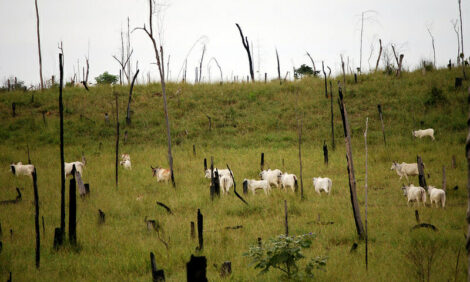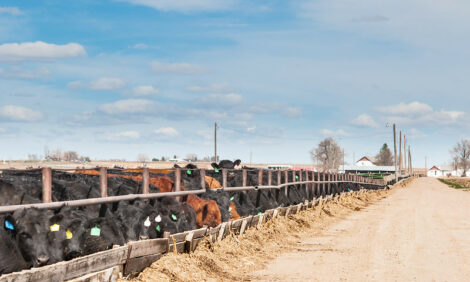



Carbon Credits: the Benefits of Change
KANSAS, US - The scientific and political implications of global warming were discussed during yesterday’s KLA Beef Industry University, sponsored by the Farm Credit Associations of Kansas.A full house of 450 KLA members and guests heard Hudson Institute Center for Global Food Issues Dennis Avery reveal the "truth of temperature change." Clark Group partner Sara Hessenflow Harper explained the political realities of climate change, including what agriculture has to gain or lose from being part of the negotiations on any new climate legislation.
Avery said ice cores indicate Earth is on a 1,500-year climate cycle, with warming and cooling lasting centuries at a time. He said many of the man-made greenhouse gas theorists can’t explain warming that occurred from 1860 to 1940, prior to the industrial era and widespread fossil fuel use.
"There is no evidence of a significant man-made warming of the climate," he told the audience.
Avery advised KLA members to keep asking policy-makers and environmentalists, "Where’s the warming?"
Harper reviewed some of the legislation proposed by Congress to regulate greenhouse gas emissions. Some would reward agriculture for management practices that capture and store carbon in the soil. For ranchers, many techniques intended to increase forage production also tend to "sequester" atmospheric carbon. Another way animal agriculture could generate income and reduce greenhouse emissions is to capture methane from manure. Harper said markets for the "carbon credits" resulting from these practices could exist if ag is engaged in the debate.
"If you’re not at the table, you’re on the menu," she said.
TheCattleSite News Desk


